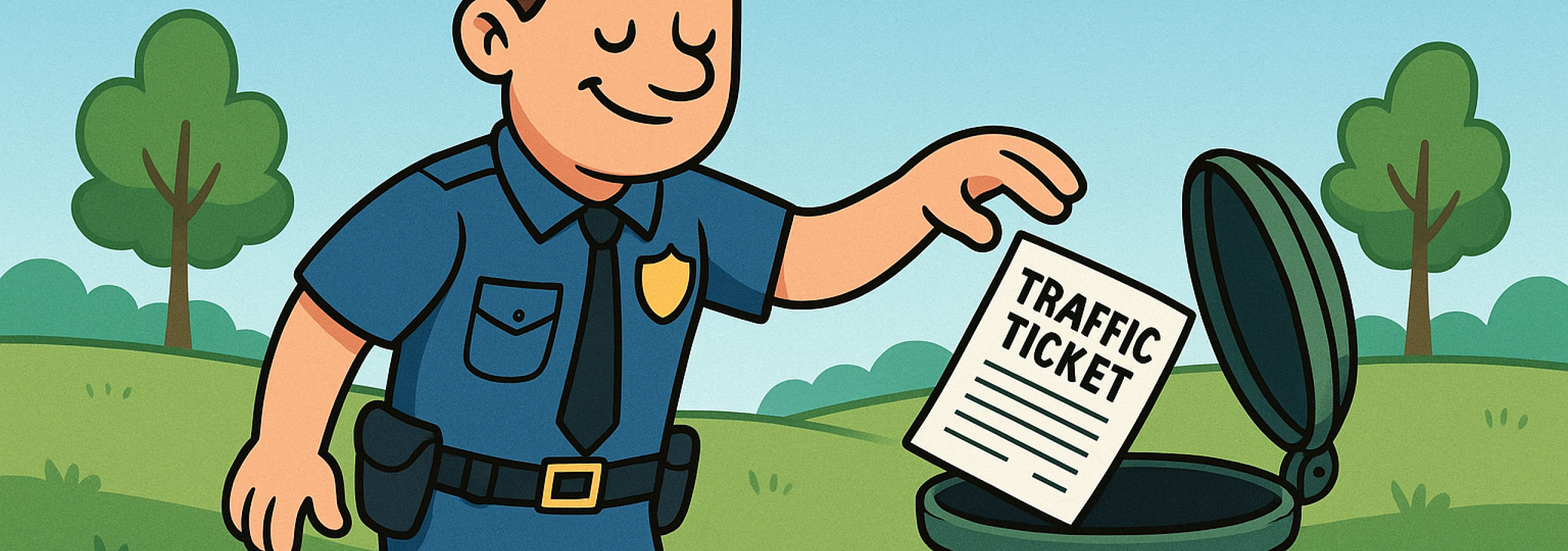
The Myth of the Ticket That Gets Thrown Out
One of the most enduring stories about traffic tickets is that they can be “thrown out.” People repeat it as though the ticket itself gets torn up, erased, or dismissed the moment someone raises a minor defect. The reality in British Columbia is far less dramatic. There is no such thing as a ticket automatically getting thrown out. Disputed ticket go before a judicial justice in Provincial Court, and only then does the evidence get tested.
Common Misconceptions Behind the Myth
The myth usually arises from two assumptions. The first is that technical defects in a ticket will make it invalid. The second is that if the police evidence seems weak to an accused person, the court must reject it. Neither assumption is correct.
Technical Defects Rarely Decide Cases
Traffic tickets are issued on standard forms, and yes, occasionally they contain mistakes. A name might be misspelled, a digit might be missing, or the officer might check a wrong box. These are the types of “errors” that people often cite as grounds for a ticket being thrown out. But it does not work that way. The court looks at whether the accused person is properly informed of the allegation and whether the error creates actual prejudice. Most small mistakes have no effect. To succeed on a technical argument, the defect must be so significant that it goes to the substance of the allegation or prevents the accused from knowing the case to meet. That is rare.
Weak Evidence Isn’t Always Weak
The second misconception is about what counts as weak evidence. Many clients believe that because the officer did not have video, or because the officer may not remember every detail, the evidence will be disregarded. In reality, police testimony is often enough to prove the charge. Officers are trained to observe, record, and testify. Their notes back up their memory. Even when cross-examination reveals gaps or uncertainties, that does not always mean the evidence collapses. A court may still find it credible and reliable.
Reasonable Doubt Is Not the Same as Weak Evidence
When defence lawyers succeed in these cases, it is often not because the evidence was “weak” but because the court recognized that the case, though strong, still left a reasonable doubt. That is a subtle but critical distinction. Traffic court judicial justices often explain in their reasons that while it may be more likely than not that the driver committed the offence, the standard in a traffic trial is proof beyond a reasonable doubt. Close cases can be decided in the driver’s favour, not because the evidence was nonexistent, but because the law demands a higher level of certainty.
Why the Myth Persists
So why does the story of tickets being thrown out continue to circulate? Partly because it makes for a neat summary. People prefer a simple explanation: “the officer made a mistake” or “the ticket got tossed.” The real process of careful cross-examination, legal argument, and the court applying the burden of proof is less flashy. Yet that is where most successes come from. The legend of the thrown-out ticket is more fiction than fact. In the courtroom, victories are usually earned, rather than gifted.
What You Can Do
If you are facing a traffic ticket in BC and wondering whether it might be “thrown out,” the best step is to get legal advice. Every case is different, and success depends on the facts, the evidence, and how the law applies. Contact BC Driving Lawyers to discuss your case. We are traffic court lawyers who have been defending traffic tickets for over 25 years. We can explain your options and give you a clear picture of what to expect in court.